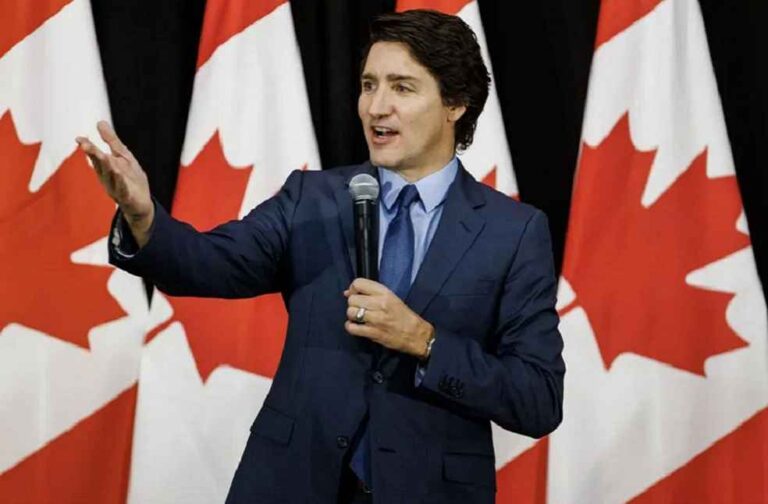Canada’s automotive industry is deeply concerned about incoming U.S. President Donald Trump’s proposed 25% tariffs on all imports from Canada. Industry leaders warn that such measures could severely damage the integrated North American auto sector, increase costs for consumers, and put thousands of jobs at risk.
The industry is bracing for the potential economic fallout as Mr. Trump’s inauguration approaches, with his administration linking the tariffs to demands for stricter border security. In response, Canadian officials are preparing retaliatory tariffs, raising fears of a trade war that could push the nation into recession.
Brian Kingston, president of the Canadian Vehicle Manufacturers’ Association (CVMA), labeled the tariff threat as “extremely problematic.” He highlighted the decades-long integration of the North American auto sector, facilitated by free-trade agreements, which enables car components to move tariff-free across borders multiple times during production.

“There is no such thing as an American-built vehicle, a Canadian-built vehicle, or a Mexican-built vehicle,” Mr. Kingston said. “We build vehicles together.”
Automobiles are Canada’s second-largest export, generating $51 billion in 2023, with 93% destined for the U.S. Canadian plants produced 1.5 million passenger vehicles in 2023, supporting 128,000 jobs in manufacturing.
The proposed tariffs would increase car prices for U.S. consumers, reduce demand, and weaken North America’s ability to compete with China, which is dominating global markets with electric vehicles.
“These tariffs are essentially a tax—on consumers and businesses alike—and threaten the competitiveness of the entire North American auto industry,” Mr. Kingston explained.
Manufacturers’ Association, echoed these concerns. He pointed out that U.S. factories heavily rely on Canadian-made parts. For instance, Stellantis’s Jeep plant in Ohio sources 40% of its components from Canada. Tariffs would inflate production costs, potentially driving up the price of Chrysler minivans made in Windsor, Ontario, and Chevrolet pickup trucks produced in Oshawa by 25% for U.S. buyers.

“It’s hard to justify long-term production under these conditions,” Mr. Volpe said, warning of widespread ramifications for parts suppliers across Canada and the U.S.
The integrated nature of the industry means reduced car production would immediately affect suppliers. “If I’m not making a car, I’m not buying parts like seats,” Mr. Volpe said, adding that suppliers in Ontario, such as seat factories in London, could face closure, with no U.S.-based alternatives ready to fill the gap.
Transit bus maker Nova Bus, owned by Volvo Group, is also concerned. The company employs 1,400 people near Montreal and relies on a global supply chain for parts. Retaliatory tariffs by Canada could raise costs for their production of diesel, electric, and hybrid buses.
“Trade wars don’t benefit anyone,” said Christos Kritsidimas, Nova Bus’s vice president of legal and public affairs, acknowledging the potential harm to businesses and consumers alike.
MAJOR EVENTS | Youth to Drive Auto Sector Growth: PM Modi at Bharat Mobility Expo 2025





